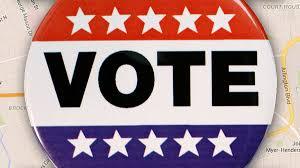
With Election Day around the corner, employers should be mindful that encouraging – and not discouraging – employees should be the general rule around voting in the upcoming November 3, 2020 election.
Federal law does not require giving employees time off to vote, but a majority of states and some local ordinances mandate voting leave time, especially when an employee’s work hours do not permit sufficient time to vote during poll hours. Even in states where there is no voting leave law, it’s considered good practice to encourage employees to exercise this important right to mitigate the risk of a potential retaliation claim.
In terms of pay, state voting leave laws vary on whether such time off must be paid or unpaid for nonexempt employees. Exempt employees who take a partial day off to vote during normal working hours should not have their pay reduced, as doing so would jeopardize their exempt status under the Fair Labor Standards Act. Giving employees time off to participate in civic or community activities tends to improve worker performance. Employers who are offering time off or even paid time off to vote will likely reap the benefits through improved employee attitudes and performance.
Employers in states with voting-leave laws should be familiar with the specific requirements, as some state laws have a lot of details including technical posting requirements. Click here or here to see where your state falls when it comes to current voter-leave law. While not all states impose requirements on employers, some impose time off obligations and notice requirements with the possibility of criminal or civil penalties for non-compliance. It’s a good idea to review existing policies and practices immediately to ensure compliance with applicable laws and be prepared to address employee requests for time off prior to Election Day on November 3, 2020.
Employers also should consider the impact of remote employees, which may allow greater flexibility in meeting relevant obligations. Further, the anticipated increase in absentee and mail-in ballot requests may mitigate some of the practical impact on employers as it relates to time off requests.
One option to keep open the lines of communication is for the employer to ask workers to give advance notice if they need time off and may require that workers take that leave at a specific time of the workday. In some states where leave is paid, employers might have the right to ask employees to prove they actually voted. Most states prohibit employers from disciplining or firing an employee who takes time off from work to vote. The general theme across the U.S. with respect to voting laws is that employees will be given time off to vote if there is insufficient time between the time the polls open and close within the state and the time employees start and finish work.
One developing area that is unclear for many employers is how to handle employees who request time off to vote when polls are open for early voting or where voting by mail or drop boxes is an option. Typically, state laws requiring an employer to provide time off to vote stipulate that the time off is available only to employees who do not have sufficient time outside of working hours to vote. Employers could argue that states and localities with flexible voting options allow employees to vote on weekends or other days when they are not scheduled to work, therefore eliminating the need to request voting leave on election days. Employers should consult with legal counsel prior to denying leave to an employee in these circumstances, as most state laws have not yet addressed this topic.
A common question regarding time off to vote is how employers handle employees who live in a different state from where they work. For example, a Kansas-based employer may have employees who live in Missouri where the voting leave-law differs from that in Kansas. Which law does the employer have to comply with? Generally, employment laws apply in the state where the employee performs work. However, experts suggest that employers take a generous approach. Remember, every state’s public policy is to encourage voting in elections, and interfering with an employee’s ability to vote due to technicalities in the statutes could cast a negative light on an employer. Employers are encouraged to follow the state law that is most beneficial to the employee.
Want to take more action to promote participation over politics in this election? Here are some other ideas to get you started on encouraging this basic level of civic engagement.
- Distributing information about how, where and when to vote, along with tools to register and request a ballot online.
- Hosting a voter registration event or voting celebration.
- Adopting flexible schedules with no meetings on Election Day.
- Providing paid hours to vote, whether on Election Day or before it for early voting.
- Allowing employees use of printers for absentee ballot applications, as well as paying postage.
- Sending non-partisan e-mails to remind employees to vote.
- Encouraging employees to offer child care, elder care or rides to the polls for others in their communities to vote on Election Day.
- Giving paid time off for employees to train as poll workers, as San Francisco-based denim company Levi Strauss & Co. is doing this year.
- Reducing store hours on Election Day to ensure that employees can vote in person, as Best Buy has pledged to do.
- Closing entirely on Election Day, a practice started by Patagonia in 2016 and now picked up by other employers.
A simple email communication is perfectly acceptable to get the word out. Ultimately, we encourage you to foster an environment that generally helps employees find a way to get to the polls this Election Day.
Written by Mark Izzo


0 Comments